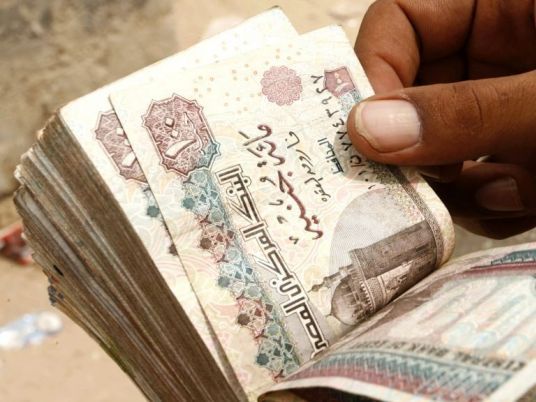Egypt’s Finance Minister Amr El Garhy has said his country needs to move faster in dealing with its currency woes, opening up the possibility of a large and rapid devaluation of the Egyptian pound.
Speaking in London on September 8, he said the years since the 2011 revolution had seen the country make “a textbook of mistakes.” Slow economic growth has been accompanied by rapid rises in the public sector wage bill and high spending on subsidies, all of which have lead to a sharp rise in the budget deficit and government debt – the latter is now close to 100% of GDP.
The country’s foreign exchange reserves have also been falling, prompting the authorities to introduce foreign exchange restrictions which, in turn, have acted as a brake on economic activity.
“There are a lot of Egyptian companies that haven’t invested as much as they would have liked due to a shortage in dollars,” says Simon Kitchen, head of strategy research at local bank EFG Hermes.

An Egyptian woman walks past a currency exchange store in Cairo on January 6, 2013. (Photo: KHALED DESOUKI/AFP/Getty Images)
The currency problems are exemplified by the mismatch between the official and black market rates of the Egyptian pound. A series of devaluations (the most recent was in March) have failed to close the gap between the two. The official rate currently stands at EGP8.88 to the dollar while the black market rate is around EGP12.70.
El Garhy now says the government has been too slow in responding to the weakness in the currency. “We were on the slow pace in responding to what’s happening to the economy and we have to move in my opinion a bit faster,” he told the audience in London.
“We need a monetary policy that is conducive to the economy in terms of bringing the country back to a competitive level … creating balance between demand and supply in the best way possible and [that] eliminates the confusion in the market and the disparity in the market between the current market rate and the official rate.
“The longer you leave a problem like this the more it gets deeper and resolving it would become more difficult. So it is better to handle this sooner rather than later, but we want to handle it in a comprehensive way.”
The pace of reform is being pushed by the IMF, which last month agreed a $12bn rescue package for Egypt, subject to approval by the organisation’s executive board. The deal also depends on Egypt raising a further $5-6bn in additional funds from other sources. El Garhy says this additional money should be in place in “a very few weeks”.
Among the conditions of the IMF financing programme is likely to be a concerted move towards a floating exchange rate, along with cuts to subsidies and other areas of current spending to bring the budget deficit under control.

